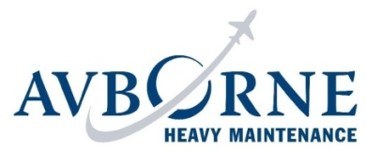Strategy and Execution: Don’t Let “Build It And They Will Come” Make You Shoeless
June 17, 2021
I had to double-check my timeline in writing this article, but it turns out that Ray Liotta picked up a baseball bat about a year before he was Henry Hill, to play Shoeless Joe Jackson.
In 1989’s Field of Dreams, another Ray, Kevin Costner’s Ray Kinsella character, an Iowa farmer, has a bit of a supernatural encounter with a voice and a vision, which combine with other personal motives to build a baseball diamond amidst his cornfield, necessitating the destruction of quite a bit of income-producing farmland. (Well, what the heck, you can always grow more corn, you can’t always have a baseball diamond and the Chicago White Sox in your back yard.)
The quote “build it and they will come” attributed to the movie is a bit inaccurate. In the movie, it was said as “if you build it, HE will come,” meaning a certain 1919 World Series baseball player whose name shall ever remain Shoeless.
The “If you build it, THEY will come,” quote was spoken by President Teddy Roosevelt in reference to the construction of the Panama Canal.
In both cases, both big bets. Big bets that one could argue paid off.

When startups, and more specifically, individuals, run off and “build it so they (the customers, and clients) will come,” they often do so with incomplete information.
There may not be an immediate “payback,” or visible effect such as seeing the long-passed Shoeless Joe Jackson and the rest of the 1919 Chicago White Sox doing drills in a cornfield converted to an infield.
And, there may not be limitless public funds, as in the case of the Panama Canal, or Alaska’s Bridge to Nowhere, or investor capital for certain tech plays, such as was the case with the development of the original Google platform.
Therefore, it is very critical to gave clear objectives, tight projections, and clear answers to what, when, why, how much, e.g.
Objective Perspective
For most startups living in the world of a fat idea and a skinny budget, business takes (or should, take) solid business planning, and often the best results come from what I call “objective perspective.” Asking for help from business leaders and mentors who’ve “been there, done that” and may not have the T-Shirt but may have come close to being shirtless or shoeless, is invaluable.
If, If, If
Taking well-intended advice from family members who encourage you to “go for it,” can get ill-prepared entrepreneurs in trouble as well. I recently encountered a gentleman who described himself as a “serial entrepreneur,” (although his last five businesses all went into shutdown, and as far as I can tell, had been sued by partners, vendors, and even his own attorney and accountant.)
I asked him what he’d learned from the experiences and his response was, “if I only had more cash.”
Uh. Wrong answer.

This entrepreneur might have been better characterized as a “cereal entrepreneur” because his strategy was to have a big bowl of Lucky Charms, cross his fingers, and throw around buzzwords learned on TV and podcasts.
Honestly I don’t believe the guy ever picked up a book and in the end, his disastrous destruction of his last company, it was his arrogance that did him in. Never did the concept of culpability as an owner and manager enter his mind.
Hoping for a pot of gold, or even a rainbow, isn’t a strategy, and you can’t hope everything just turns out to be magically delicious.
Results come from careful execution, not random sorcery.
If the 1919 “Black Sox” had only played better baseball; if they’d only not taken money to throw the World Series. If Arnold Rothstein had only not fixed the series (or did he?). If only the series had been decided in “best of 7” instead of “best of 9” games.
Fire, Ready, Aim
Business is a thinking man’s game.
Seldom does “Fire, Ready, Aim” work in life, or in business. When you watch Aaron Sorkin’s movie The Social Network, whose book was more accurately called “The Accidental Billionaires,” it yields a truth that seldom does joss, or random chaos, lead to great results, but it can and does happen once in a blue moon. There are multibillion companies launched out of dorm rooms by inept geeks who struggle to order a pizza — likely, no. Possible, yes.
Seldom is the success of a business a direct result of the extreme capex outlay to build something ornate and complex. Those of us who specialize in fixing (most are restorable, many aren’t) flawed businesses which don’t make money often encounter fantastic looking companies with layers of great people, in stellar facilities, with a shiny fleet of cars and service vehicles which don’t make any profit. In some cases, only halfway down the income statement, just past Cost of Goods Sold, often there is no or negligible gross margin.
How can you make net income if you don’t have gross margin?
So the “cereal” entrepreneur betting his pot at the end of the rainbow, or his bowl of Lucky Charms, ought to have a solid business plan, strong customer relationships, profitable products and services to sell to willing, loyal customers, and, if necessary, be the lowest cost provider in the industry.

You’ve seen this before:
- Facebook, the world’s most popular and valuable media tool, creates no content.
- Uber, the world’s largest taxi company, owns no vehicles.
- Alibaba, the world’s most valuable retailer, owns no inventory
- Airbnb, the world’s largest accommodation provider, owns no real estate or hotel rooms.
Just don’t be the entrepreneur who doesn’t own a pair of shoes.
Walk a mile, or at least a few steps in the shoes of experience and sane, sound planning and execution, before you start mowing down the cornfield.
Create value, and a delightful customer experience that fills a need, and can be scaled, and they will come knocking.
There’s a time to run, a time to walk, even a time to hike, but there’s never a time to be shoeless, and “build it and they will come” is usually not a viable strategy, and neither is thinking you’ll necessarily be rewarded for the image or the size of the organization you create.



































































































































































































